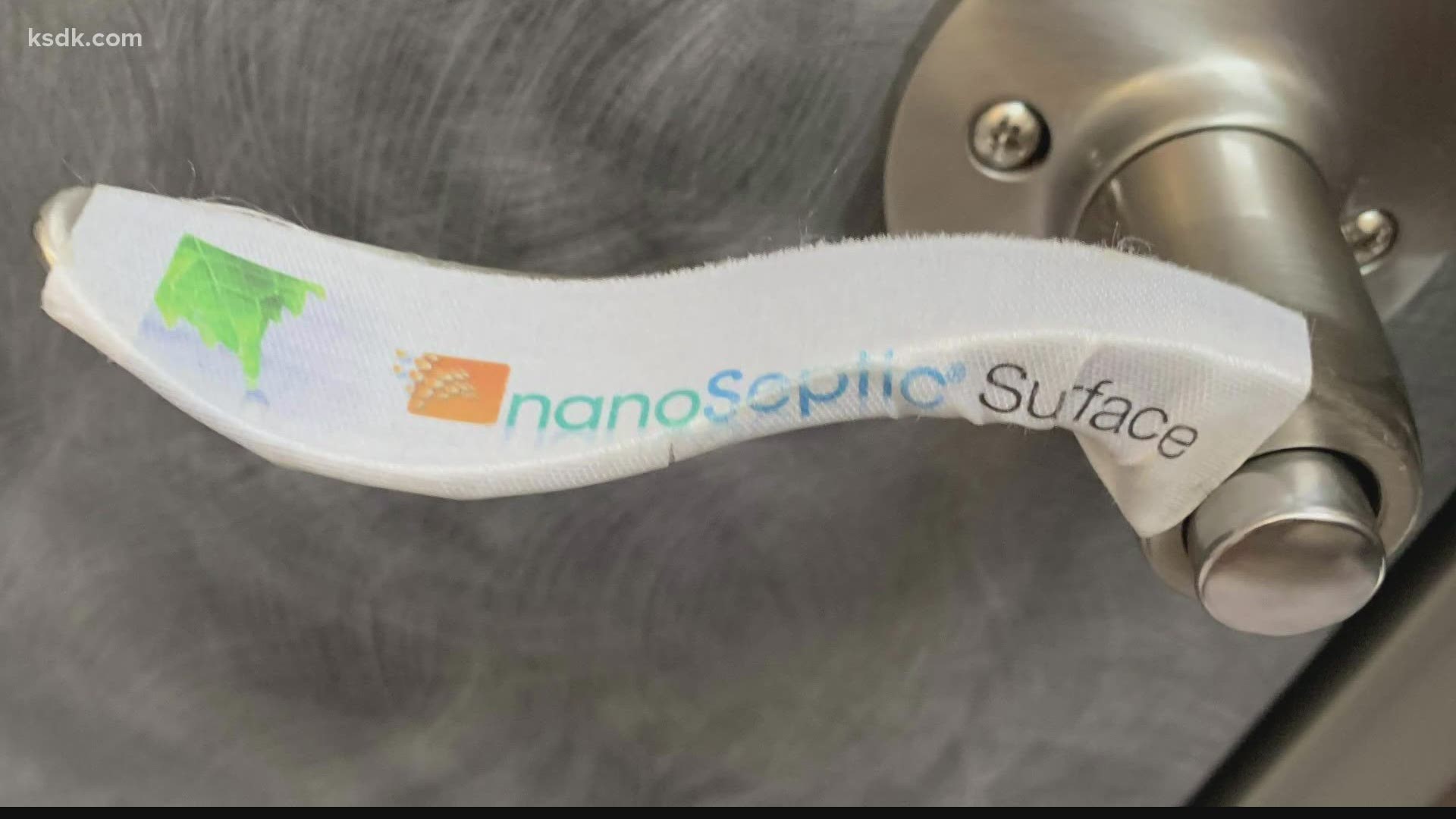ST. LOUIS — We've been told for months that the coronavirus can be spread on surfaces we encounter throughout the day, but now the CDC is saying the virus doesn't travel as easily on items as we thought — so, is it time to ditch the disinfectant wipes?
“We've had millions of cases, and over 100,000 deaths in the United States now, and nothing has ever been traced to groceries or mail or a package, so I think that's telling,” said Dr. Tim Wiemken with Saint Louis University’s Center for Outcomes Research.
Studies have shown COVID-19 can survive on surfaces, like a tabletop. But the CDC’s updated messaging on COVID-19 and surfaces clarifies that just because we could get the virus from these surfaces, doesn't mean that’s actually happening. The organization also emphasizes that the main way COVID-19 is spread is person-to-person.
“We’re all working really hard to try to prevent getting infected and try to prevent infecting other people, so we have to put the majority of our effort where we're going to get the most bang for the buck,” said Wiemken. “And right now the most bang is social distancing.”
The danger isn't surface level, exactly. It's when you get the virus on your hands then touch your face, getting it into your eyes, nose or mouth. That means it takes an extra step after touching something with the virus on it for it to actually transmit to you.
“As long as you're washing your hands, that's really the important part. You can have virus or bacteria or whatever all over your hands, and as long as you can prevent that from getting inside your body where it shouldn't be, you're good to go,” Wiemken explained.
What about "antimicrobial" or "self-cleaning" surfaces, like you might see at some businesses? There's science to prove they do work to kill viruses, but Wiemken said they're not a secret weapon.
“Nothing will ever replace hand hygiene and respiratory etiquette,” he clarified.
Many experts now agree: you don't have to worry about wiping down groceries or sanitizing mail before bringing it into your home. Just wash your hands when handling food, or objects other people come into contact with, but if you're high-risk, or just feeling anxious about it, a little extra disinfecting doesn't hurt when done properly.
“You know it doesn’t always hurt to be a little more careful. Now, will it actually be helpful or not? Probably not so much, but you know if it gives you a peace of mind, mental health is very important right now, too,” said Wiemken.
“All of the stuff that we’re doing is part of what’s called a ‘multi-modal intervention.’ We want to have as many possible things that kind of work as we can, and that includes social distancing, it includes appropriate mask use, it includes washing your hands better, with the right stuff, it includes wiping down surfaces with the appropriate disinfectant. All of these things have limitations, they’re not all perfect, but we’re hoping that we can stack all of these on top of each other and that will really prevent the spread completely.”
The CDC does recommend surfaces that a lot of different people come into contact with should still be disinfected regularly, like in public places or businesses.

